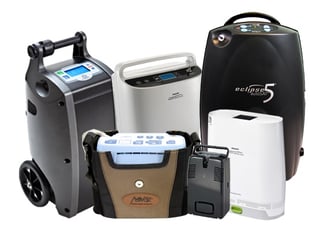
It’s hard to believe that fall is here and we’re well on our way to holiday season. It signals that the end of the year is fast approaching and that means that the deadline to spend the funds in your Flexible Spending Account (FSA) and Health Savings Account (HSA) is approaching as well. Many plans rollover until the next year, while some have a, use it or lose it clause. To avoid losing your ability to utilize funds that are rightfully yours, it’s important to find out which kind of plan you have.
What are FSAs and HSAs?
As insurance deductibles ballooned in the early part of the millennium, many people found themselves hamstrung by medical debt, even if they had insurance. Insurance companies were also getting stricter about what they would cover for what they believed were luxury procedures. Insurance premiums were also skyrocketing causing many to opt for higher deductible plans to decrease monthly payments which sometimes got them into trouble if a costly emergency came up.
To help alleviate this problem Health Savings Accounts and Flexible Spending Accounts were created. Money was taken out of each pay check and placed in these accounts in the event of a rainy day. In some cases employers matched portions of these funds.
Both types of accounts are tools to save, tax-free, for medical costs. Let’s look at some of the differences.
Differences Between Accounts
- An FSA has no eligibility requirements while HSAs are for those with high deductible health plans. Deductibles must be at least $1300 per person, or $2600 per family. Out of pocket expenses can’t exceed $6500 for an individual or $13,100 for family plans.
- For those that need to set aside a greater amount the HSA might be more beneficial. FSA limits for 2017 were set at $2300 per year. Employees can contribute up to $3400 per individual, $6750 per family, and those over 55 can contribute an additional $1000.
- HSA contributions can be adjusted throughout the year while FSA contributions are set during the enrollment period and can only be adjusted during the following open enrollment period, or with a change of employment, or family status.
- FSA contributions are pretax and distributions are not taxed. HSA contributions are tax deductible but can be deducted pretax as well. Growth and distributed funds are both tax-free.
- If you change employers your HSA funds can follow you while you will lose FSA funds with a job change. However, you may be eligible for FSA contribution via COBRA.
- The most important difference is that unused balances from an HSA rolls over from year to year. Although this sometimes varies, FSAs are forfeited at the end of the year. Most plans do however have a grace period which can be up to 3 months.
What Can These Funds Be Used for?
Each plan has its own stipulations but in general these funds are set aside for:
- Deductibles
- CoPays
- Qualifying Prescriptions
- Approved Medical Equipment
Some examples of Approved Medical Equipment
Many patients use their funds for co-pays, deductibles, and medications throughout the year. If you find yourself with a large amount at the end of the year and have a plan that doesn’t roll over, you can purchase some health related items that your regular insurance may not cover. Each plan is different so it’s best to consult your plan administrator but, these are some examples of equipment that is eligible for these funds that you may not be aware of.
- Oxygen Equipment

- Humidifier Systems
- CPAP Masks
- CPAP Filters
- Legal Fees
- Hearing Aids
- Artificial Teeth
- Service Animals and Expenses
- Stop Smoking Programs
- Wigs for Medically Caused Hair Loss
- Eye Exams
- Lead Based Paint Removal
- Acupuncture
- Bandages
- Medical Conferences
- Contact Lenses
- Vision Correction Surgery
- Home Improvements for Safety or Mobility
- Wheelchairs or Scooters
- Blood Pressure Monitors
- Walking Aids
- Household Reach Tools
If you see anything on this list that would make your life easier, act now! In some cases it takes time to process requests so get those in as soon as possible. If you don't have a FSA or HSA also remember that open enrollment just started for 2018 and will go through December 15 so there's not a lot of time if you want to be prepared for next year.





